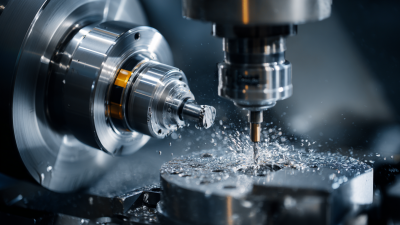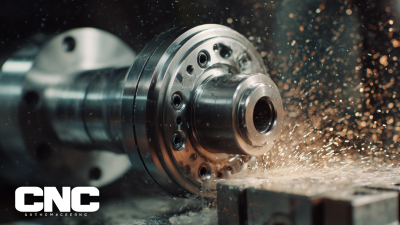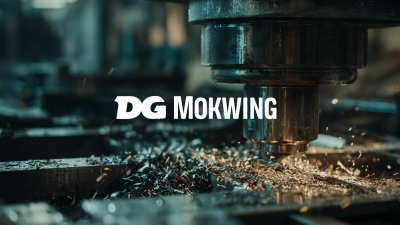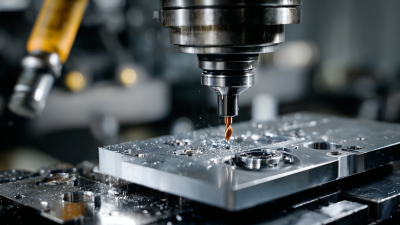
- sales@bjbod.com
- Mon - Sat at 7:00AM to 9:00PM

The landscape of manufacturing is rapidly evolving, with CNC custom machining at the forefront of precision engineering innovations. According to a report by Markets and Markets, the global CNC machining market size is projected to grow from USD 64.3 billion in 2021 to USD 100.4 billion by 2026, at a compound annual growth rate (CAGR) of 9.1%. This growth is driven by increased demand for bespoke manufacturing solutions and the integration of advanced technologies such as artificial intelligence and automation. As industries strive for efficiency and accuracy, CNC custom machining emerges as a critical player in producing intricate components that meet stringent quality standards.
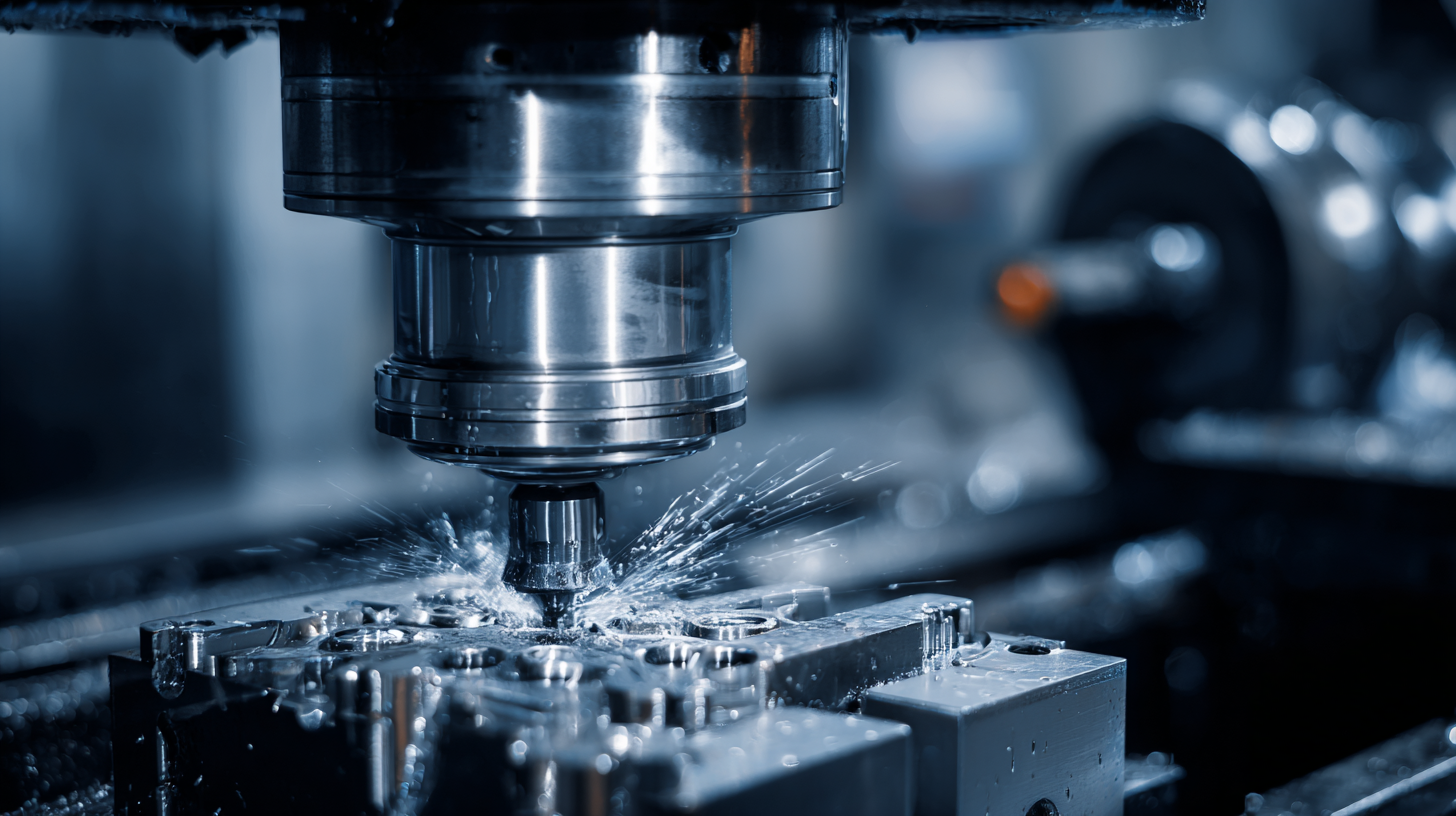
With advancements in machining techniques and materials, the future of precision engineering is poised for remarkable transformations, enabling manufacturers to achieve unprecedented levels of customization and operational efficiency.
The future of precision engineering is being shaped by innovative developments in CNC custom machining techniques, with emerging trends indicating a dynamic growth trajectory within the industry. As market research highlights the increasing demand for CNC metal precision components and tooling systems, several sectors—including aerospace, automotive, medical, and energy—are benefiting from advancements in high-precision machinery and tooling. The integration of newer materials such as stainless steel and titanium components, as well as hardened punches and dies, is enhancing the capabilities of machining processes, enabling manufacturers to meet the stringent requirements of modern engineering projects.
Moreover, the expansion of CNC tools and industrial blades specifically designed for precision machining exemplifies the industry's response to evolving market demands. Companies are increasingly investing in advanced CNC systems that offer improved accuracy and efficiency, ultimately supporting a broader range of applications. As the European CNC machine market experiences growth driven by trends in both technology and user requirements, the focus on customization and precision continues to propel the sector forward, ensuring that manufacturers can adapt to the fast-paced changes in engineering standards and customer needs.
Innovative technologies are significantly shaping the future of precision engineering, particularly through advancements in CNC custom machining techniques. With the rise of artificial intelligence and machine learning, CNC machines are now equipped with smart algorithms that optimize machining processes in real-time. This capability enhances precision and reduces production times, allowing manufacturers to respond swiftly to market demands. Furthermore, the integration of IoT (Internet of Things) in CNC operations facilitates remote monitoring and predictive maintenance, reducing downtime and ensuring consistent quality output.
Another transformative innovation is the development of advanced materials and manufacturing processes. Techniques such as additive manufacturing and hybrid machining are increasingly being adopted to create complex geometries that were once unattainable with traditional methods. This not only expands design possibilities but also promotes sustainability by minimizing material waste. As industries continue to demand higher precision and efficiency, the evolution of CNC custom machining will play a crucial role in enabling engineers to meet these challenges while driving forward the principles of precision engineering.
This chart illustrates the growth in the adoption of various CNC custom machining techniques, showcasing the advancements over the years. The data reflects the increasing interest in these techniques due to their precision and efficiency in engineering applications.
Digital integration in CNC machining processes is reshaping the landscape of manufacturing by enhancing productivity and efficiency across various sectors. The introduction of advanced technologies such as digital twins and CNC control systems enables real-time monitoring and optimization of machining processes. This integration allows manufacturers to achieve higher precision, minimize waste, and streamline operations, ultimately leading to improved product quality and reduced turnaround times.

Moreover, modern CNC machining techniques such as multi-axis machining and customized setups are becoming increasingly accessible due to digital advancements. These innovations facilitate complex designs and allow for a greater degree of customization, which is crucial in today's competitive market. As industries adopt these digital solutions, the reliance on traditional methods diminishes, paving the way for a more agile and responsive manufacturing environment that can quickly adapt to changing consumer demands.
In the rapidly evolving landscape of precision engineering, the adoption of advanced CNC custom machining techniques is pivotal for industries aiming to enhance operational efficiency and product accuracy. The global CNC milling machine market is projected to grow from USD 16.626 billion in 2025 to USD 26.699 billion by 2033, reflecting a compound annual growth rate (CAGR) of 6.1%. This growth underscores the increasing demand for high-precision manufacturing processes, driven by advancements in technology and the need for customized solutions across various sectors.

Best practices in enhancing precision within custom machining involve the integration of innovative technologies such as additive manufacturing and 3D scanning. For instance, the development of sophisticated 3D scanning equipment allows manufacturers to create highly accurate models that can be directly translated into CNC machining operations. Moreover, ensuring real-time data accuracy throughout the machining process is crucial; manufacturers are increasingly investing in smart systems to monitor and optimize workflows, thus achieving greater consistency and quality in their outputs. These innovations not only streamline production but also reduce operational costs, making precision engineering a cornerstone of future manufacturing strategies.
The field of CNC custom machining is continuously evolving, with future challenges linked to efficiency and production capabilities. According to a recent report from Grand View Research, the global CNC machining market is expected to reach $100 billion by 2026, driven by innovations in precision engineering. However, increasing demands for customized solutions pose significant challenges in maintaining efficiency in production cycles. This necessitates the adoption of advanced techniques and technologies, including automation and machine learning, to streamline operations and reduce operational costs.
To address these challenges, manufacturers are increasingly investing in smart CNC machines equipped with real-time data analytics. Research conducted by the Industry 4.0 Consortium indicates that implementing predictive maintenance can lead to a 30% reduction in machine downtime, which directly impacts machining efficiency. Furthermore, integrating cloud-based platforms allows for enhanced collaboration and communication across production lines, enabling manufacturers to respond swiftly to changes in customer demands without compromising efficiency. By focusing on these innovative solutions, the CNC custom machining sector can overcome hurdles and ensure a sustainable future in precision engineering.
